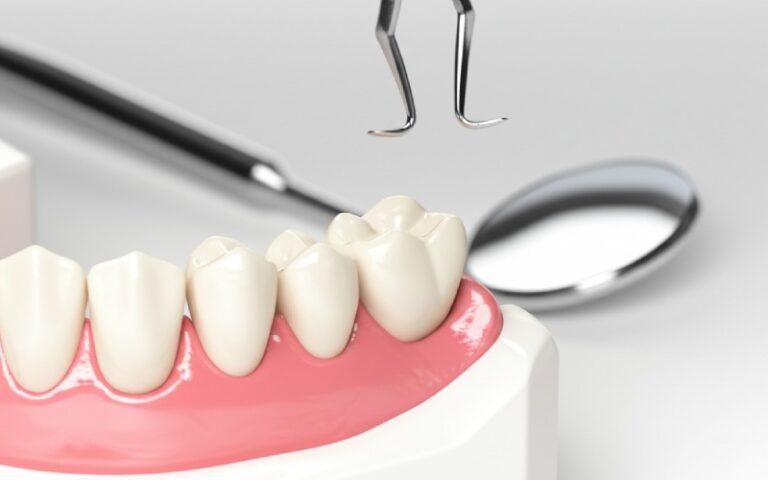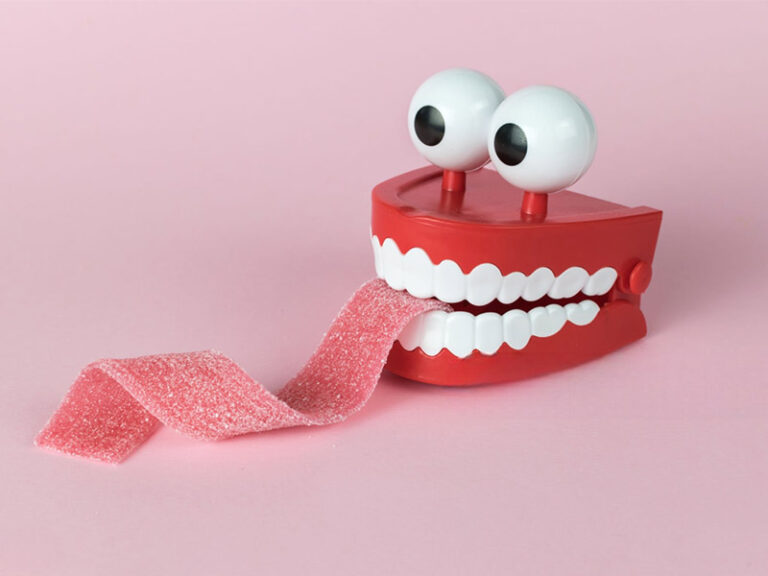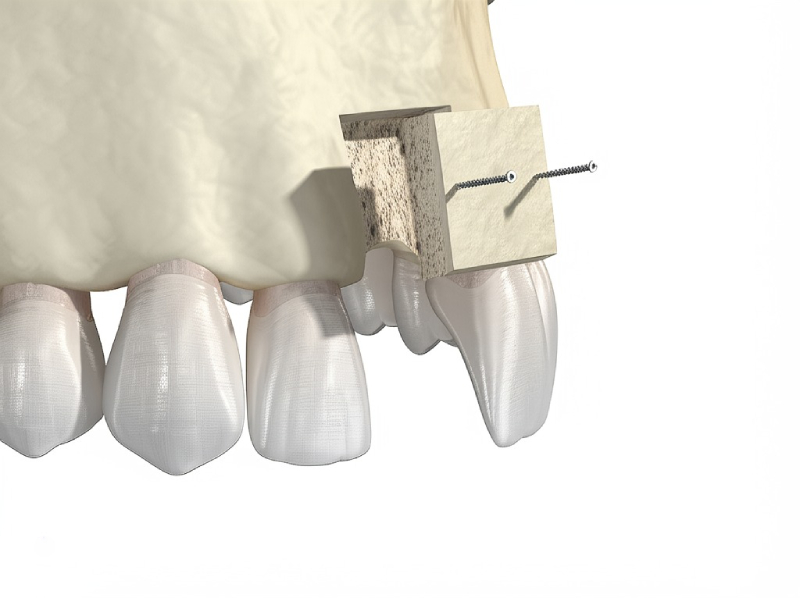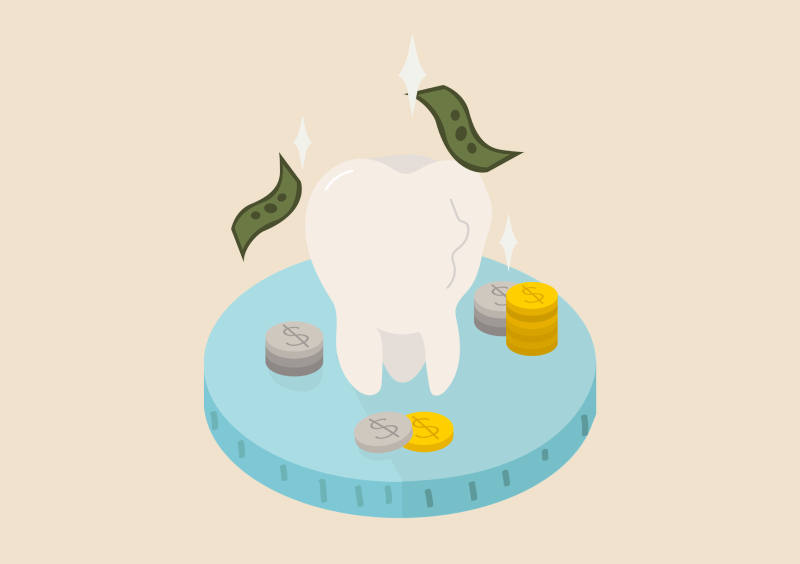
Dental Crown Costs: A Simple Guide to Prices, Insurance, & Saving Money
Does thinking about the cost of a dental crown make you a little queasy? You’re not the only one. You know you need a crown to fix a weak or broken tooth but the price tag can be a real shocker. Don’t worry this guide is here to help. I’ll break down what goes into the price of a dental crown for you. We’ll look at everything from the average cost to how your dental insurance can pitch in. By the end you’ll know how to find an affordable crown and feel confident about your decision.
Table of Contents
So, How Much Does a Tooth Crown Cost?
Let’s get right to it. The number one question is always: how much does a crown actually cost? The short answer is the price for a single crown can be anywhere from $800 to over $3,000. That’s a huge range, I know.
So why the big price gap? Well, a few key things affect the final bill. Think of it like buying a car. A basic model gets you from A to B but a luxury model has all the bells and whistles and costs a lot more. We’ll dig into all the factors that make the price go up or down.
This guide will help you understand what you’re paying for. We’ll look at cheaper crowns and the pricier ones so you can pick what’s best for you.
Why Do Crown Prices Change So Much?
You might wonder why your friend paid one price and your dentist quoted you something totally different. There are good reasons for this. When you understand what changes the price you’ll see where your money is going. It’s not just one thing but a mix of a few key factors.
Where you live is a huge factor. Crown prices in one state or city can be way different from another. A dentist in a big city like New York has higher rent and costs so their prices are often higher than a dentist’s in a small town. Your dentist’s experience also plays a part. A Prosthodontist is a specialist who focuses on crowns so they might charge more than a general dentist. The cool tech they use like a CEREC machine for a same-day crown can also bump up the price.
The health of your tooth matters a lot too. A simple cap on a healthy tooth is cheaper but if your tooth is in bad shape from tooth decay you might need more work. This could mean you need a build-up or a post and core which adds to the total price. A crown for a front tooth can also cost more than one for a back tooth because looks matter more up front.
What Are Crowns Made Of and What Does It Cost?
What your crown is made of is a huge part of the final price. Each material has its own price tag and perks. Your dentist will help you choose the best one for your tooth and your wallet.
Here’s a rundown of the common crown types and what they cost:
- Porcelain-fused-to-metal (PFM): These have a strong metal base with porcelain on top that matches your tooth color. The price is usually reasonable. They’re strong but sometimes a thin dark line of metal can show right at your gumline.
- All-Ceramic or All-Porcelain: These look the most like a real tooth. They are a fantastic choice for front teeth. The price for a porcelain crown is a bit higher. An E-max crown is a popular type of ceramic that’s known for looking great and being strong.
- Zirconia: This is another super-strong material that’s colored to match your teeth. A Zirconia crown costs about the same as a ceramic one. It’s so tough it’s a great pick for your back molars that do all the heavy-duty chewing.
- Gold or Metal Alloys: A gold crown’s price can change with the price of gold. These crowns are incredibly tough and are gentle on the teeth they bite against. They aren’t tooth-colored so people usually get them for back teeth you can’t see.
Knowing what each material costs helps you and your dentist decide. You have to balance how long it will last with how it looks and what you can afford. How long your crown lasts often depends on the material you pick.
How Does Dental Insurance Help with Crown Costs?
Thinking about the price of a crown with insurance can be a big relief. Most dental plans help out a lot with crowns. Insurance companies usually see crowns as a necessary fix for a tooth not just for looks. This is great news for your wallet.
Most plans like a PPO or HMO will pay for about 50% of the cost. So if your crown is $1,600 your insurance might pay $800 and you’d pay the other $800. But there are a few things to keep in mind. You’ll probably have a deductible which is an amount you pay first before your insurance kicks in. Most plans also have an annual maximum and this is the most your plan will pay for all your dental care in one year.
It’s really important to check with your insurance company. Call providers like Aetna, Cigna, MetLife, Guardian, Humana, or Delta Dental just to be sure. Ask them if crowns are covered and how much they’ll pay. Knowing these details ahead of time saves you from nasty surprises later. Using an in-network oral surgeon or dentist from a place like Local Dental Practices will almost always get you the best price.
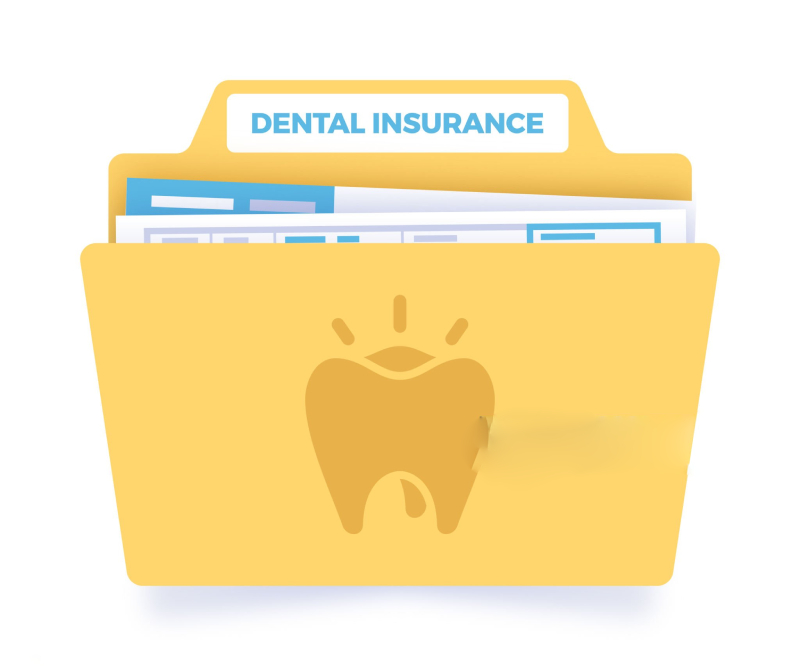
What if I Don’t Have Insurance?
Paying for a crown without insurance can feel downright scary. The out-of-pocket cost is the full price. But don’t lose hope. There are still plenty of ways to get the care you need without breaking the bank. Many people find ways to handle the cost of a dental cap.
First, always talk to your dentist’s office. A lot of offices will give you a discount if you pay in cash. It never hurts to ask! This is one way to get a cheaper crown. You can also check out dental schools for low-cost crowns. Students who are training to be dentists do the work and they are watched like hawks by their expert teachers. The quality is excellent but the price is much much lower.
Community dental clinics are another fantastic option. These clinics often have lower prices to help people in the area. You can do a quick search for “cheap dental crowns near me” to find affordable options. Please don’t let a lack of insurance stop you from fixing a cracked tooth or a broken tooth. Putting it off will only cost you more down the road.
Are There Other Ways to Pay for My Crown?
Yes! If the upfront cost is just too much there are other great ways to pay over time. These financing options make the cost much easier to handle. You don’t have to pay for the whole thing at once.
Many people use payment plans for their dental work. Your dentist’s office might offer a plan that lets you pay a set amount each month. There are also healthcare credit companies like CareCredit and LendingClub. They work like credit cards but they’re just for health-related bills. They often have special deals where you pay no interest if you pay off the full amount in a specific time frame like 6 or 12 months.
You can also use a Flexible Spending Account (FSA) or a Health Savings Account (HSA) if you have one. You put money into these accounts from your paycheck before taxes are taken out so you’re paying with tax-free dollars. A dental savings plan is another great choice. It isn’t insurance but you pay a yearly fee and get big discounts on dental work. Check out sites like DentalPlans.com to see how a discount plan can help lower the price of your dental work.
What Other Costs Pop Up with a Dental Crown?
When you get a price quote for a crown make sure you know exactly what it includes. The price for the permanent crown is just one piece of the puzzle. Several other small fees can add up. Knowing all the costs is key.
Before any work starts you’ll need an exam and an X-ray. The cost for an X-ray is usually extra. There’s often a fee for the first visit too. If your tooth is very weak or has a big filling you may need a tooth build-up/core. This just creates a stronger base for the crown to sit on. If you’ve had a root canal you’ll probably need a post and core. This is a tiny rod placed in the tooth to give it extra support.
You’ll also need a temporary crown. This little guy protects your tooth while the dental lab makes your permanent one. The cost for the temporary is usually included in the total price but it’s always smart to ask. The lab fees are what the dentist pays the lab to create your crown and this is part of your overall fee. Finally, the cost for local anesthesia is for the shot that numbs your mouth so you don’t feel a thing.
Is a Dental Crown Really Worth the Money?
When you see the bill for a dental crown you might ask yourself if it’s really worth it. The answer is a huge YES. A crown is an investment in your health. It’s not just about a nice smile it’s about keeping your mouth healthy for years.
Think about the good things a crown does. A crown protects a weak tooth so it doesn’t break completely. It can save a tooth that has a giant filling or has had a root canal. A crown helps you chew right and can make your smile look fantastic. These are big deals that make your daily life better.
Now think about what happens if you wait. A small crack can turn into a lost tooth. That can cause even more problems like your other teeth shifting around and bone loss in your jaw. Fixing those problems later with a dental implant crown or a dental bridge is way more expensive. So paying for the crown now saves you from bigger bills and more pain later. Paying for a crown is a much better deal than ignoring the problem.
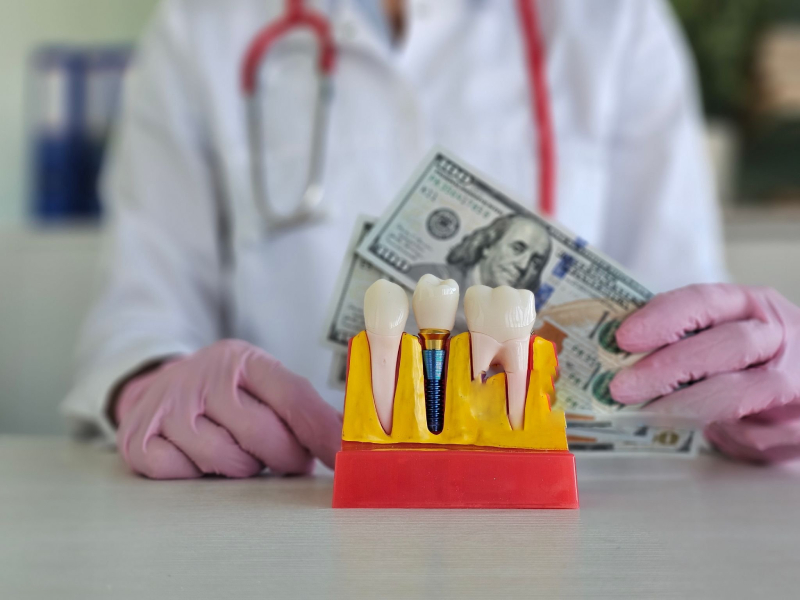
What’s the Difference Between a Crown, an Onlay, or a Veneer?
Sometimes you might have other options besides a full crown. It’s good to know the difference so you can talk with your dentist. A crown covers your entire tooth like a little helmet or a cap. That’s why people often call it the cost of a cap. A partial crown costs less because it covers less of the tooth.
An onlay is another option that’s sometimes called a partial crown. It fits inside the little bumps on top of your tooth. Your dentist might use one when the damage isn’t bad enough to need a full crown. An onlay usually costs less than a full crown. A veneer is a super-thin shell that only goes on the front of a tooth. It’s mostly just for looks. A veneer can cost about the same as a crown but it doesn’t give you the same strength or protection.
Your dentist will tell you what you need. A Maryland bridge crown is another specific type of fix. For kids there’s also a pediatric crown which is usually a simple stainless steel crown. The American Dental Association (ADA) has codes for all these different treatments.
How Can I Get the Real Price for My Crown?
The best way to know the real cost is to get a detailed price estimate from your dentist. Don’t be shy about asking questions during your visit. A good dentist wants you to feel comfortable and know all the facts about your treatment and the cost to put the crown on.
Ask for an itemized bill. This will show you a list of every single charge. You’ll see the dentist’s fee the lab fee and the cost for any extra work. If you’re not sure what something means just ask them to explain it. This is the only way to get a clear picture of the final price for your cap.
It can also be a smart idea to get a second opinion especially for a big procedure. This lets you compare prices for the crown. You can see if another trusted dentist recommends the same treatment and if their price is similar. Getting a clear price helps you plan and takes away the stress of not knowing. It puts you in charge of your own dental health.
What Are My Next Steps?
You now have a much better idea of what dental crowns cost. You understand the average prices in the USA and what affects the final bill. You know about material choices insurance payment options and all the little extra costs. You’re ready to move forward.
Your next step is to talk to a pro. Set up a visit with your dentist. If you have an emergency they can give you an estimate for an urgent dental crown. They can look at your tooth and give you a clear plan and a solid price. They can also talk to you about any risks and the best way to take care of your new crown.
Remember to ask about a dental crown warranty. Some dentists and labs offer a guarantee on their work for a few years. This gives you extra peace of mind. Knowing the steps for the procedure and any follow-up costs will make everything go smoother.
Your Quick Guide to Crown Costs
Here’s a handy table to see the average costs at a glance. Just remember these are estimates from sources like American Dental Association (ADA) surveys and insurance companies. Your actual cost will depend on the factors we talked about.
| Factor/Crown Type | Cost Range (Without Insurance) | Average Cost (Without Insurance) | Average You Pay (With Insurance) |
|---|---|---|---|
| Overall Average | $800 – $3,000 | $1,500 | $750 |
| Porcelain Fused to Metal (PFM) | $800 – $1,500 | $1,100 | $550 |
| All-Ceramic (E-max) | $1,000 – $2,500 | $1,600 | $800 |
| Zirconia | $1,000 – $2,500 | $1,700 | $850 |
| Gold/Metal Alloy | $800 – $2,500 | $1,400 | $700 |
| Other Possible Costs | |||
| Initial Visit | $50 – $200 | $100 | $0 – $50 |
| Tooth Build-up/Core | $200 – $500 | $300 | $150 |
| Root Canal (if needed) | $700 – $1,500+ | $1,000 | $500 |
Costs are estimates and can change based on your location and your specific needs. Some insurance plans like Medicaid or Medicare may have different coverage rules so it’s best to check with a provider like UnitedHealthcare for specifics.
Key Takeaways to Remember
Deciding on a dental crown is a big deal. You have to think about your health and your budget. Here are the most important things to take away from this guide:
- Costs Vary: The average cost of a crown is around $1,500 but it can change a lot depending on the material where you live and your dentist.
- Material Matters: A ceramic crown often costs more than a metal one but it looks more like a real tooth. Zirconia gives you amazing strength.
- Insurance Helps: Insurance usually covers about 50% of the cost but don’t forget to check your deductible and annual maximum.
- You Have Options: If you don’t have insurance look into payment plans dental schools financing options like CareCredit or dental savings plans.
- Don’t Wait: Putting off a needed crown can lead to bigger problems and bigger bills later on. Protecting your tooth now is the smartest and cheapest choice in the long run.
- Ask Questions: Get a detailed estimate from your dentist so you know exactly what you’re paying for from the price to remove an old crown to the cost of gluing it back on if it ever comes loose.
You’re now armed with the knowledge to handle the cost of a dental crown. You can talk to your dentist with confidence and make the best choice for your smile and your health.

